The Ghana Climate Innovation Centre (GCIC) in collaboration with the Ministry of Food and Agriculture (MoFA) on the 31st of July 2018, held a day’s workshop to promote the operationalisation of the National Climate Smart Agriculture Action Plan (NCSAAP).
Under the theme: ‘Creating Green Businesses Through Climate Smart Agriculture’, the workshop served as a platform for CSA stakeholders to have in-depth discussions on the practice and benefits that could be derived from operationalization of the action plan. It also served as an opportunity for stakeholders to identify available support structures in skills training, financing and marketing for green entrepreneurs.
Mr. Seth Osei Akoto, Director of Crop Services at MoFA, stressed on the need to switch to Climate Smart Agricultural practices as the changing phase of the country’s climate would pose a huge challenge to farming and this would be a threat to the sustenance of the social-economic development of Ghana with regards to food production.

The MOFA Crop Services Director noted that the optimal operationalization of the current action plan would boost agricultural sector productivity, profitability, create jobs and ensure its sustainability. He said there was the urgent need to expand the horizon of Climate Smart Agriculture (CSA) to the realms of entrepreneurs and businesses by updating their knowledge the opportunities that Climate Change presents.
 Mr Akoto explained that green business opportunities existed in the areas of electronic extension and marketing, soil management and conditioning, agronomic practices, efficient water management, harvesting and post-harvest. Other areas he noted included; organic agriculture, livestock feed preparation, agriculture infrastructure and machinery, food processing and many more and stated that the joint efforts as green businesses and agriculture practitioners could increase the income of famers exponentially and reduce poverty.
Mr Akoto explained that green business opportunities existed in the areas of electronic extension and marketing, soil management and conditioning, agronomic practices, efficient water management, harvesting and post-harvest. Other areas he noted included; organic agriculture, livestock feed preparation, agriculture infrastructure and machinery, food processing and many more and stated that the joint efforts as green businesses and agriculture practitioners could increase the income of famers exponentially and reduce poverty.
The Director added that exploring the opportunities in green business would contribute to the reduction of Greenhouse Gas (GHG) from the Agriculture, Forestry and other land use sector that stood at almost 25 per cent.
Dr. Eric Twum, the Policy Fellow at the GCIC said the agriculture sector drove many economies and climate change posed great risk to the sector in terms of floods, droughts, rising sea levels- threatening farmers and businesses along the entire value chain leading to loss of livelihood and food insecurity. Quoting from the 2010 Ghana Statistical Service report, he said the agricultural sector, the largest employer of the economy, had over the years, been adversely affected by climate change and variability.
 The Ghana Climate Innovation Centre (GCIC) is a pioneering business incubator whose objective is to support entrepreneurs and ventures involved in developing profitable and locally appropriate solutions to climate change mitigation and adaptation in Ghana. The Centre’s key focus is on building businesses operating within the areas of energy efficiency, domestic waste management, solar energy, water supply management and purification and climate-smart agriculture. GCIC is part of the World Bank Group’s infoDev Climate Technology Program. Supported by the governments of Denmark and the Netherlands, the Centre is managed by a consortium led by the Ashesi University and including Ernst & Young, SNV Ghana, and the United Nations University Institute for Natural Resources in Africa.
The Ghana Climate Innovation Centre (GCIC) is a pioneering business incubator whose objective is to support entrepreneurs and ventures involved in developing profitable and locally appropriate solutions to climate change mitigation and adaptation in Ghana. The Centre’s key focus is on building businesses operating within the areas of energy efficiency, domestic waste management, solar energy, water supply management and purification and climate-smart agriculture. GCIC is part of the World Bank Group’s infoDev Climate Technology Program. Supported by the governments of Denmark and the Netherlands, the Centre is managed by a consortium led by the Ashesi University and including Ernst & Young, SNV Ghana, and the United Nations University Institute for Natural Resources in Africa.


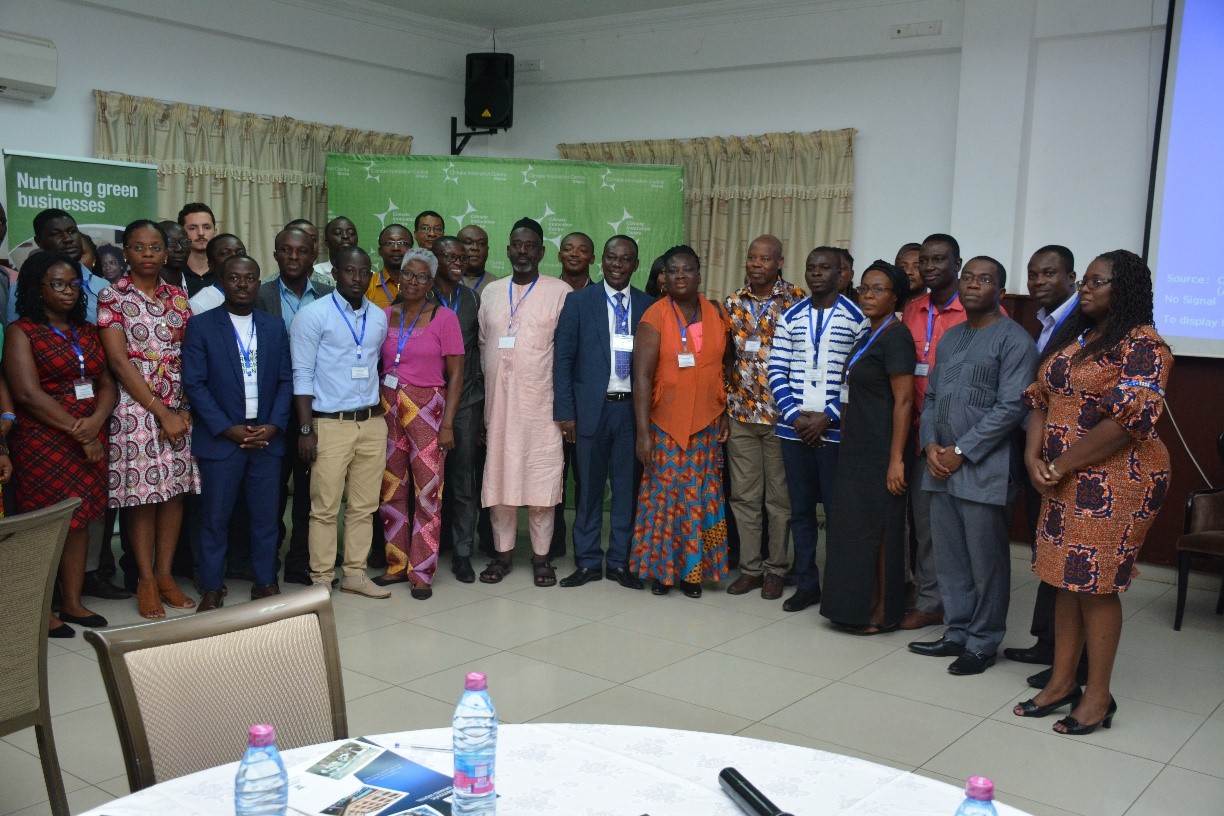



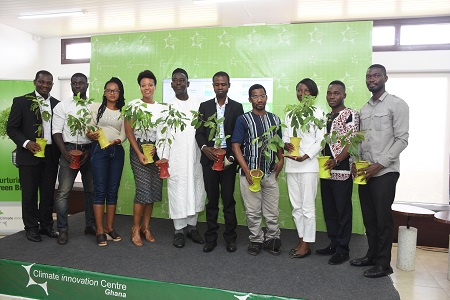






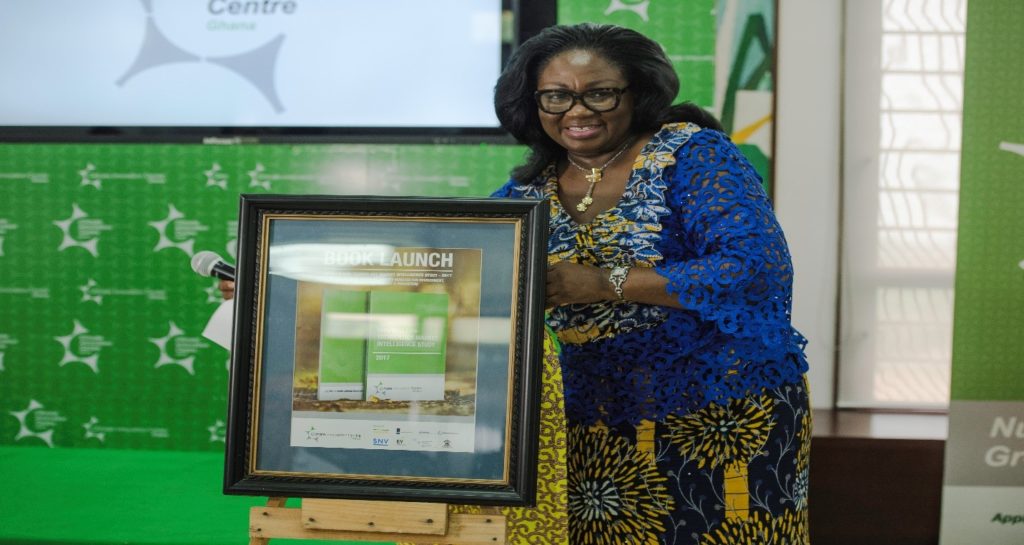 In her keynote address, Mrs Appiagyei commended the entrepreneurs on their enthusiasm to protect the environment and their foresight in venturing into environmentally friendly businesses that have transformative potential for Ghana and the world at large. She disclosed the intentions of Government of Ghana to develop an alternate energy mix to supplement the existing energy plan of the country. Mrs Appaigyei observed that Ghana can address and alleviate the existing poverty gap through the adoption of technology, and in this respect, the GCIC could be a valuable partner to the Government’s flagship
In her keynote address, Mrs Appiagyei commended the entrepreneurs on their enthusiasm to protect the environment and their foresight in venturing into environmentally friendly businesses that have transformative potential for Ghana and the world at large. She disclosed the intentions of Government of Ghana to develop an alternate energy mix to supplement the existing energy plan of the country. Mrs Appaigyei observed that Ghana can address and alleviate the existing poverty gap through the adoption of technology, and in this respect, the GCIC could be a valuable partner to the Government’s flagship 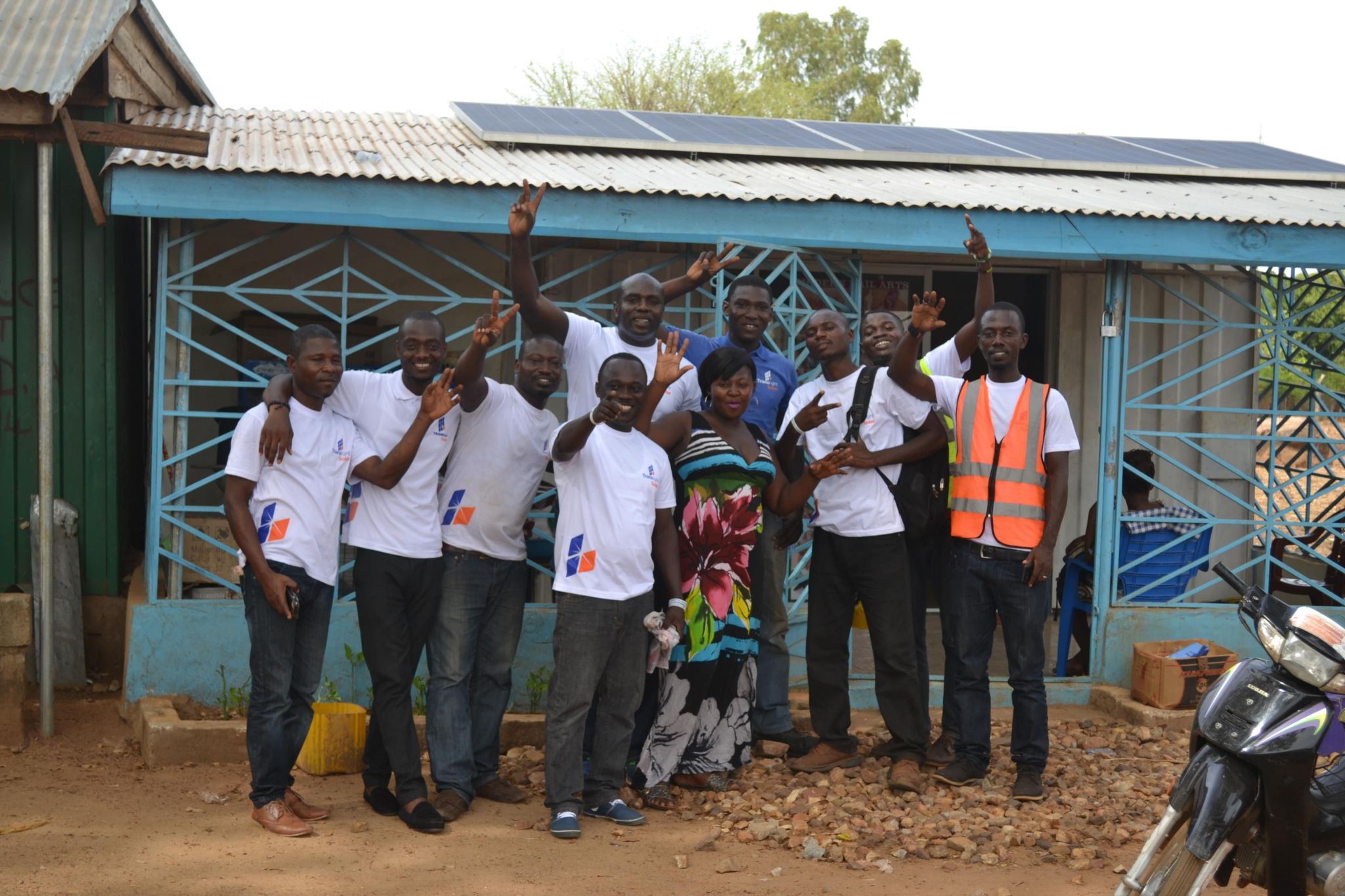
 Translight’s innovation is based on creating Africa’s premier virtual energy grid and a comprehensive platform to allow financial institutions to lend to customers for the purchase of solar energy systems removing the barrier of high upfront costs when migrating to renewable energy. The company’s solutions are poised to transform the way energy is generated and transmitted on the continent, allowing even the most remote parts of the continent to be electrified for economic development and job creation. It will significantly reduce the cost of electricity for those who are already connected to the grid.
Translight’s innovation is based on creating Africa’s premier virtual energy grid and a comprehensive platform to allow financial institutions to lend to customers for the purchase of solar energy systems removing the barrier of high upfront costs when migrating to renewable energy. The company’s solutions are poised to transform the way energy is generated and transmitted on the continent, allowing even the most remote parts of the continent to be electrified for economic development and job creation. It will significantly reduce the cost of electricity for those who are already connected to the grid. Mr. George Kwakye, the marketing manager of Translight Solar in receiving the award gave special thanks to the support the company receives from the Ghana Climate Innovation Center (GCIC). He said, “We are grateful for the leadership of our CEO, Kobina Nyanteh. We couldn’t have come this far without the support from the GCIC. We give special thanks to Ruka Sanusi, Abdul-Nasser Alidu and the support we get from Maarten, Charlotte and Daniel all under the GCIC program. We are grateful for the partnership with Fano Technologies under the leadership of Dr. Fred McBagonluri and Nicholas Tali. Special thanks goes to Philip, Brian, Japtheth and the entire Translight team.”
Mr. George Kwakye, the marketing manager of Translight Solar in receiving the award gave special thanks to the support the company receives from the Ghana Climate Innovation Center (GCIC). He said, “We are grateful for the leadership of our CEO, Kobina Nyanteh. We couldn’t have come this far without the support from the GCIC. We give special thanks to Ruka Sanusi, Abdul-Nasser Alidu and the support we get from Maarten, Charlotte and Daniel all under the GCIC program. We are grateful for the partnership with Fano Technologies under the leadership of Dr. Fred McBagonluri and Nicholas Tali. Special thanks goes to Philip, Brian, Japtheth and the entire Translight team.”
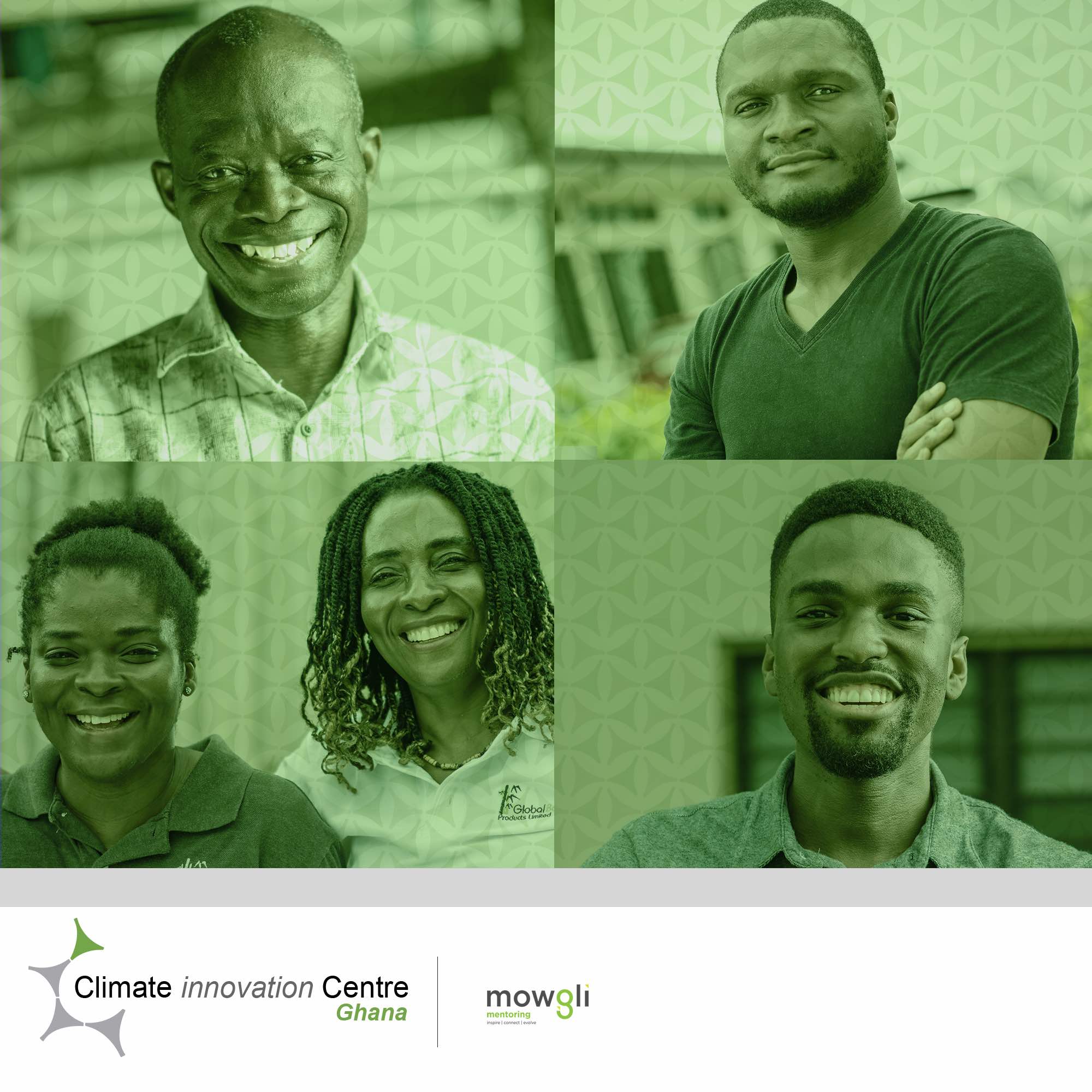
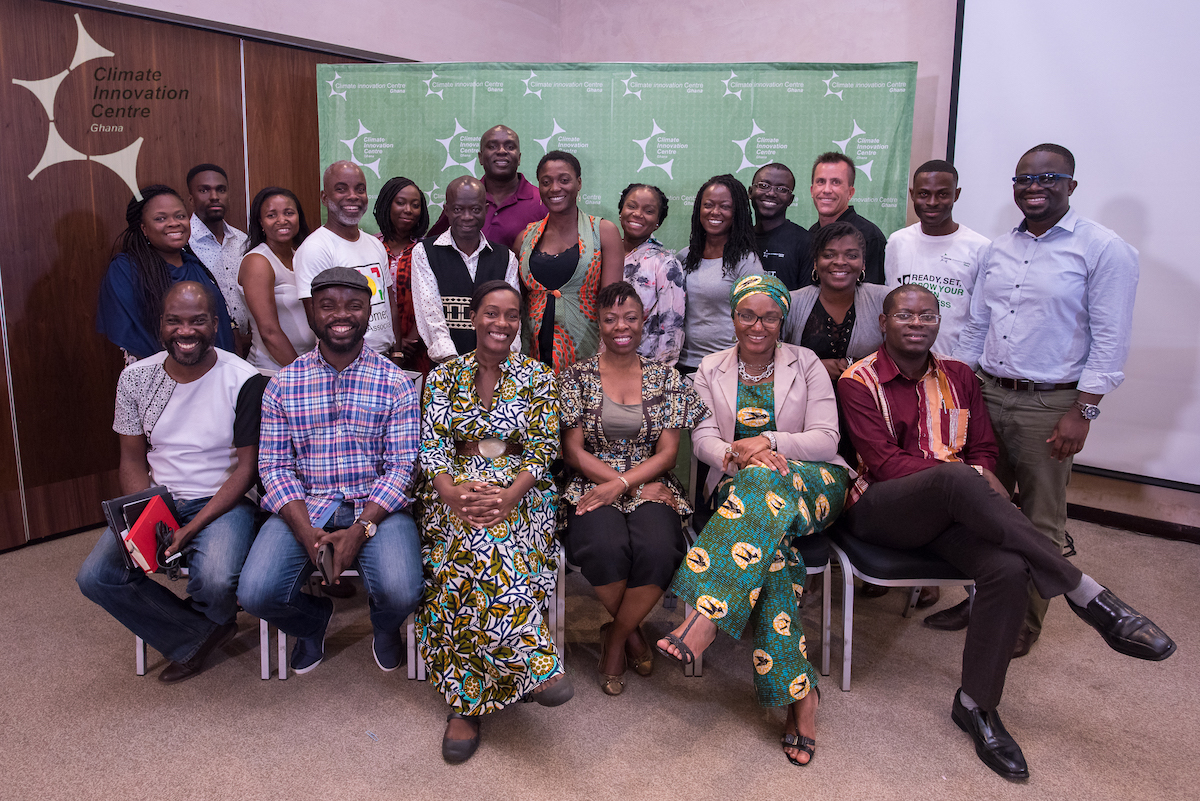
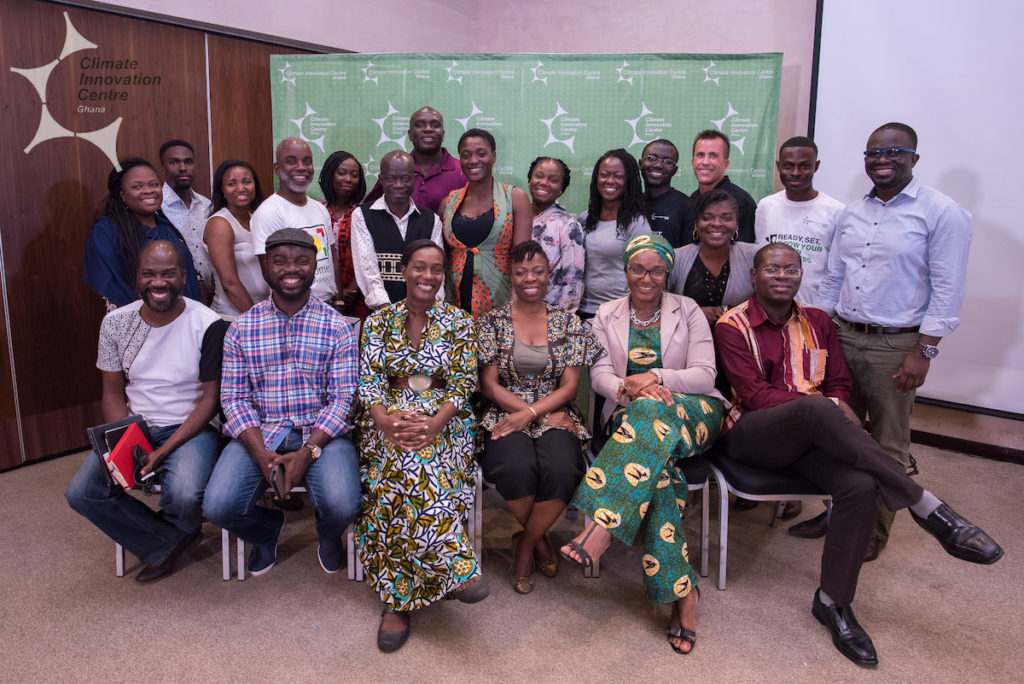 1
1
 The
The 